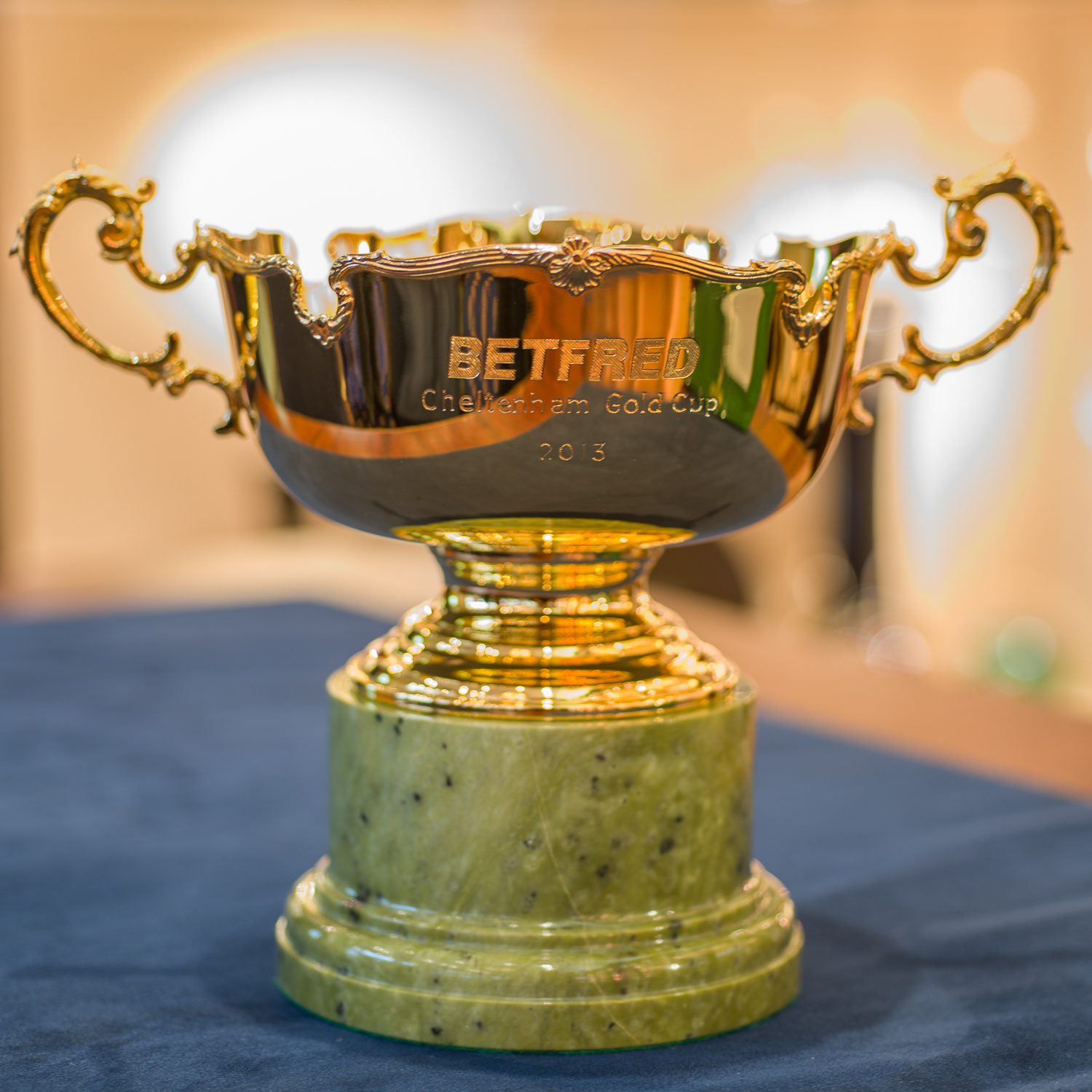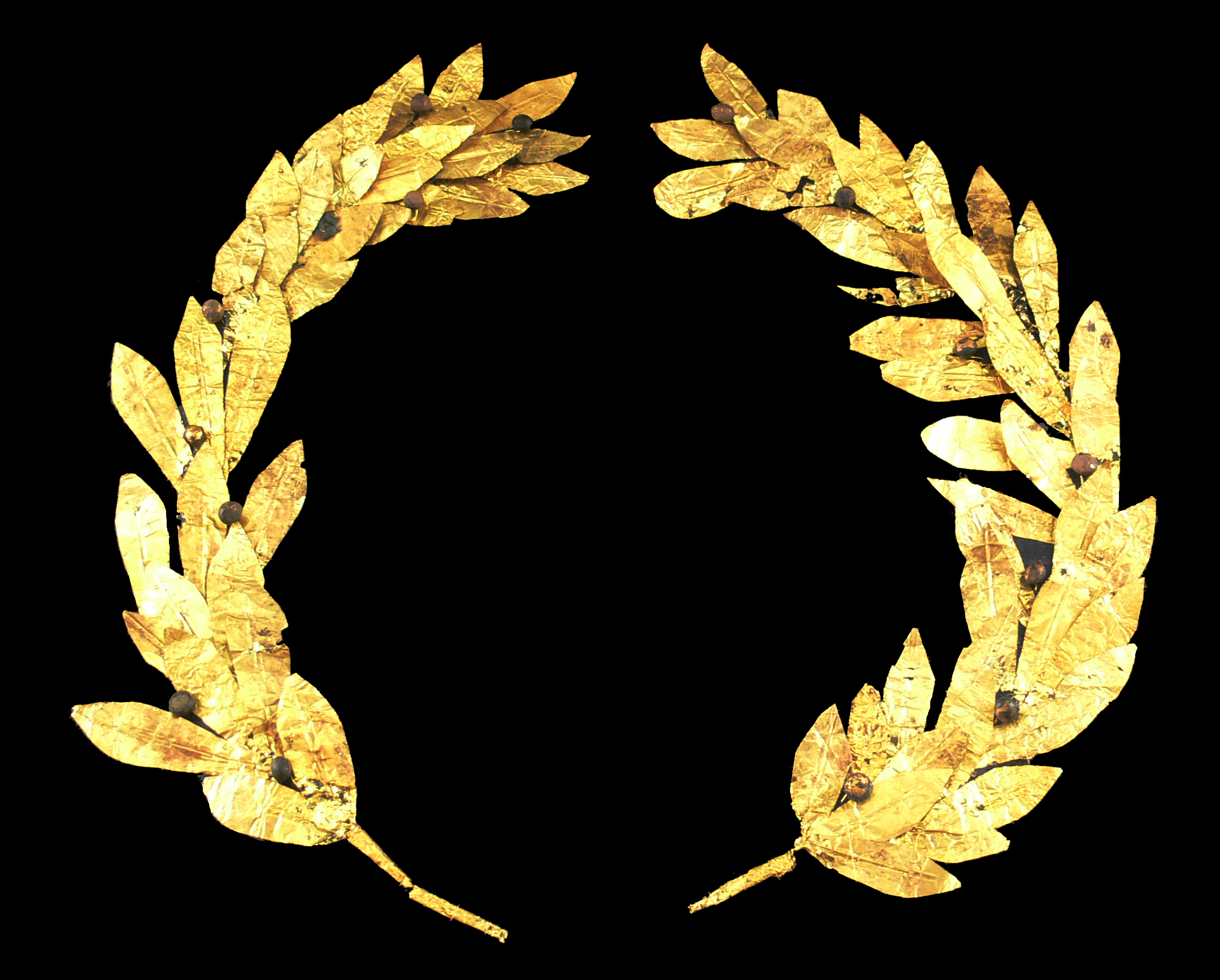– Gold Cup at Cheltenham – ‘The Olympics’ of the European horse racing calendar – Gold Cup trophy contains 10 troy ounces of gold – worth £9,000 – £620 million bets on horses, 230,000 pints of Guinness will be drunk, 9.2 tonnes of potato eaten – Since the 5th century BC, gold has been the ultimate prize to award champions and gold has been constantly and universally awarded as top prize – Gold, like the summit of human achievement, is very rare and hence precious – Gold is a great prize and a good bet but works best as store of value and better to take a ‘punt’ on gold than gamble on the horses The Cheltenham Gold Cup race takes place this Friday, March 16 at 3.30pm. The Gold Cup is the finale of the Cheltenham
Topics:
Mark O'Byrne considers the following as important: Daily Market Update, Featured, GoldCore, newsletter
This could be interesting, too:
Nachrichten Ticker - www.finanzen.ch writes Die Performance der Kryptowährungen in KW 9: Das hat sich bei Bitcoin, Ether & Co. getan
Nachrichten Ticker - www.finanzen.ch writes Wer verbirgt sich hinter der Ethereum-Technologie?
Martin Hartmann writes Eine Analyse nach den Lehren von Milton Friedman
Marc Chandler writes March 2025 Monthly
– Gold Cup at Cheltenham – ‘The Olympics’ of the European horse racing calendar
– Gold Cup trophy contains 10 troy ounces of gold – worth £9,000
– £620 million bets on horses, 230,000 pints of Guinness will be drunk, 9.2 tonnes of potato eaten
– Since the 5th century BC, gold has been the ultimate prize to award champions and gold has been constantly and universally awarded as top prize
– Gold, like the summit of human achievement, is very rare and hence precious
– Gold is a great prize and a good bet but works best as store of value and better to take a ‘punt’ on gold than gamble on the horses
| The Cheltenham Gold Cup race takes place this Friday, March 16 at 3.30pm. The Gold Cup is the finale of the Cheltenham Festival, the Olympics of horse jump racing, which runs from yesterday to this Friday.
This week 65,000 people have been gathering in Cheltenham for the 28 races which will be raced over the four day gathering with over £4,600,000 of prize money will be handed out this week at Cheltenham Festival. The Gold Cup is the most prestigious of the most prestigious of all National Hunt events and it is sometimes referred to as the Blue Riband of horse jump-racing. The race takes place over 3 miles 2½ furlongs (5,331 m) and includes 22 fences to be jumped. The prize for winning the Gold Cup is £600,000. and the beautiful Gold Cup trophy made with 10 ounes of gold. The prize for those who turn up to watch the world famous event? The chance to experience the excitement and fun of race day and likely lose a few bob – with a massive £600 million staked on the outcome of the races. As we know the bookie nearly always win. 10 ounces of gold and over half-a-billion British pounds of cash surrounding one event. What does this say about the state of our economy today and how we award our sporting heroes? |
|
The Greatest Show on TurfIt is nearly 200 years since the most exciting race in the UK calendar was first run in 1819. 230,000 people are expected to attend this year, with 10,000 of them expected to make the special trip from Ireland in order to celebrate their jockey riders, amazing horses and indeed St. Patrick’s Day week – Saturday being March 17th. And what comes hand in had with horse racing? The big spending, gambling and lots of drinking. Over 230,000 pints of Guinness will be drunk, 9 tonnes of potato eaten and 3 tonnes of smoked salmon enjoyed. Cash machines will be working hard to keep up with everyone’s spending as they churn out £2.2 million of notes and assist punters to place over £1 million of bets per race. And what are they all there for? They’re there for the run up to or the main event itself that is the Cheltenham Gold Cup, a near 200 year old race that is the darling of the racing calendar. What makes it so exciting is that it is the only major race that is not run on the flat. Whilst the predecessor to the Gold Cup race was first run flat in the 19th century it wasn’t until 1924 that there was the “introduction of a level weights extended three mile steeplechase, called The Cheltenham Gold Cup”. The Gold Cup is a chance to see the best in horse racing. It is so prestigious that it is rarely cancelled, and is considered to be the most important of steeplechase races. For race-goers the event is a chance to win big, ever hoping that the bookies get it as wrong and misplace their odds. For the riders, trainers and owners the race is not only about the honour that comes with winning but also about getting their hands on the prize money and the prestigious Cheltenham Gold Cup trophy. |
|
I’ve got a golden ticket cupOn Friday, 30 horses and jockeys will run the race of their lives in the hope of bringing home 10 ounces of gold, neatly melted into the form of a small trophy. As with the Olympic medals and the Oscars, a new gold cup is made each year for the owners. But a gold cup hasn’t always been the reward for this infamous race. The owner of the first winner, Spectre, received 100 guineas. At the time, the coins would have contained a quarter ounce of gold akin to British gold sovereigns, so 25 ounces of gold in total. The gold price in 1819 was $19.39, so this prize in gold terms would have been worth $484.75. That same amount of gold today is worth $30,750. Not bad for a prize that was received nearly 200 years ago. There is less gold in today’s prize cup than there was in that stash of guineas nearly 200 years ago, but 10 ounces is nothing to be sniffed at. With less than 50% of the gold that was on offer when the race was first run in 1819, this year’s cup is worth £9,950. Is this why we reward the best of the best with gold? Because it will serve to reward them in decades to come? Really, no one will care about a piece of paper that says they won but a gold coins, a gold bar or indeed a beautiful gold cup will be valued and stand the test of time. Gold gives value to our winnersWhether it’s spending on your ‘gold card’, or competing for a gold medal, receiving a Nobel Prize or even travelling Gold Class, the yellow metal is still believed to be the best. We can go back to the early days of gold’s discovery that we regarded gold as the ultimate way to recognise our champions. In his play Plutus, even the comic playwright Aristophanes wrote in 408BC of how Olympians should be awarded with gold . |
“Why, Zeus is poor, and I will clearly prove it to you. In the Olympic games, which he founded, and to which he convokes the whole of Greece every four years, why does he only crown the victorious athletes with wild olive? If he were rich he would give them gold.”
Whilst the Greek playwright was joking, his point was a valid one and one that still strikes a chord today. We crown the most talented amongst us with gold. Even when the headlines have died down, even when no-one can remember who won a famous race four years ago, the winner is still left with a timeless piece of gold that will always have a value.
This is more important than ever in a world that places far greater value on material stuff – many frequently superficial and disposable things – that really do not deserve it.
A prize is no better than jewellery or fancy coin
Whilst the cup might contain a whopping ten ounces of gold (more than an Olympic gold medal or Academy Award), this doesn’t mean the price of the metal is reflected in the perceived value of the prize.
In 2010, the 1988 Cheltenham Gold Cup owners had their prize stolen from them . At the time of winning (assuming the make-up of the Cup is the same as it is today) the cup’s gold content was worth £2,446. Today, that same cup is worth £9,950. To the winners, however they could not be objective about its real value. To them, it was understandably worth a lot more.
When it was stolen, the owners offered £15,000 for its return. At the time, the Cup’s owner told the BBC, ‘”What’s the point in melting it down? To me it’s worth a fortune. It’s the sentimental value, not the monetary value that’s at play here.”
This is where prizes are similar to collectible coins or jewellery, the price beyond the underlying metal content is purely subjective. Whilst you might buy a commemorative coin for a few thousand dollars, the market may well disagree with you in a few years’ time and deem it only to be worth the few grams of gold that it really is.
The same can be said for jewellery which receives a huge markup when it arrives on the market and also attracts VAT and sales tax – unlike tax free gold coins and bars and VAT free silver coins.
Whilst one might argue that the Cheltenham Gold Cup is worth more than its weight in gold, this is only the case for the winners and the small market that is interested in horse racing memorabilia.
The beauty about owning 10 ounces of pure gold bullion is that you know it will only ever be priced according to the value of the precious metal content and that the market is highly liquid. You will not go from one buyer to the next wondering if you are getting a fair price, or if you will be able to sell it at all.
Gold is for winners, not for the gamblers
Of course, there is only one Cheltenham Gold Cup to be won this week, but there are plenty of opportunities for punters to win big (and lose) at the bookies. For the £600 million plus that is at stake this week, we wonder if some of those gamblers might be better to take a leaf out of the competitors’ book and ‘go for gold’ instead.
Gold is a form of insurance to protect you when this game goes wrong and the house of cards collapses as it did in 2008.
When it comes to gold, you’re doing the opposite of gambling, you’re buying insurance for the times when others make a bad bet playing with your money. You are taking some of your hard earned ‘chips off the table’ of the global financial casino.
Rather than punting on horses, punters would be better served also having a safe haven punt on gold.
Tags: Daily Market Update,Featured,newsletter



.jpg)